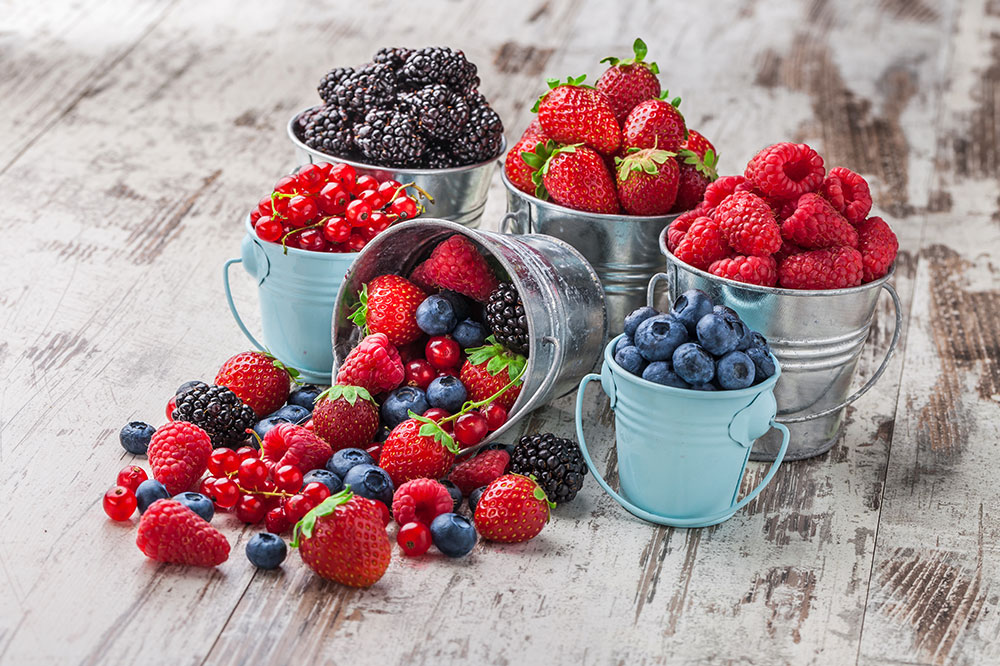Foods and remedies to help manage Parkinson’s

Parkinson’s is a degenerative neurological disorder that commonly affects senior individuals. However, there are times when patients are diagnosed with the early onset of the condition. The disease is associated with a lower amount of dopamine in the brain and damaged nerve cells. Dealing with a condition such as Parkinson’s does not have a specific to-do not-to-do plan; however, there are certain foods that are believed to aid in its management.
Foods that help manage Parkinson’s
Bananas
Bananas contain magnesium, a critical nutrient that helps lower the risk of spasm and muscle cramps. Patients with Parkinson’s are also low on dopamine, an essential neurotransmitter that regulates communication linked to movement. Bananas contain tryptophan and tyrosine, both key building blocks of dopamine that help supplement this requirement.
Berries
Studies reveal that free radicals can damage healthy brain cells and worsen the cognitive symptoms linked to Parkinson’s. Blueberries, cranberries, strawberries, raspberries, blackberries, goji berries, and elderberries are loaded with essential antioxidants and vitamin C to combat this stress and boost cognitive function. Berries are also loaded with fiber that helps manage constipation, one of the critical discomforts linked to the disease.
Broccoli
Green vegetables are rich in fibers and antioxidants that actively help combat oxidative stress to minimize dopamine loss. Broccoli is one of the top choices that help boost immunity, combat constipation, and improve cognitive function.
Fish
Different types of fish like salmon, tuna, sardines, trout, herring, and anchovies are loaded with essential omega-3 fatty acids. Studies reveal that omega 3s help manage confusion, reduce the risk of dementia, and even promote better motor control among Parkinson’s patients.
Green tea
Certain beverages can also help lower the progression of neurological disorders. Green tea, for example, contains natural polyphenols that help protect dopamine. Studies have shown the risk of Parkinson’s among those who drink green tea regularly is lower than those who don’t.
Nuts
Nuts are a great alternative source of healthy omega-3 fats and antioxidants. Popular choices for Parkinson’s management include pistachios, walnuts, Brazil nuts, and pecans.
Aside from food and lifestyle changes, some remedial options that have been used to help manage Parkinson’s are as follows.
Remedies for Parkinson’s
RYTARY®
Rytary® is an FDA-approved treatment option for Parkinson’s patients. The capsules contain levodopa/carbidopa that work in combination to help combat symptoms. Levodopa acts as a dopamine substitute for the patient and carbidopa helps decrease its side effects. Levodopa side effects include low blood pressure, nausea, hallucinations, and more.
Sinemet®
Doctors suggest using this combination prescription of levodopa-carbidopa to manage better the symptoms linked to movement difficulty, shaking, and stiffness throughout the body. The generic oral tablets were approved only after extensive carbidopa-levodopa clinical trials. Carbidopa-levodopa side effects include allergic reactions like hives and swelling on the lips, tongue, throat, or face. Some people may also experience difficulty breathing, and immediate medical attention is advisable.
Opicapone (ONGENTYS)
Ongentys® is a commonly used remedial option for Parkinson’s that works by blocking the COMT enzyme. It is used in combination with levodopa/carbidopa based on data from clinical trials and studies.





